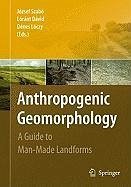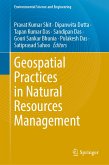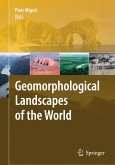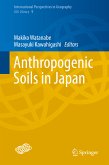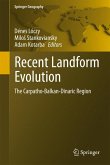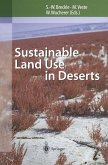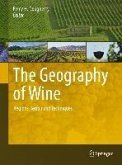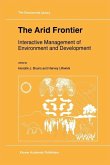This volume provides guidance to students discussing the basic topics of anthropogenic geomorphology. The chapters cover both its system, and its connections with other sciences, as well as the way the subject can contribute to coping with practical problems. The book represents all fields of geomorphology, giving an introduction to the diversity of the discipline through examples taken from a range of contexts and periods, and focusing on examples from Europe.
It is no accident that anthropogenic geomorphology has been gaining ground within geomorphology itself. Its results advance not only the theoretical development of the science but can be applied directly to social and economic issues. Worldwide, anthropogenic geomorphology is an integral and expanding part of the Earth sciences curricula in higher education, making this volume timely and relevant.
Key themes: Anthropogenic Geomorphology - Dynamic equilibrium - Environmentalism - Geomorphic processes - Human impact - Man-made landforms
József Szabó is Professor Emeritus at the Department of Physical Geography and Geoinformatics, University of Debrecen. He is President of the Hungarian Geographical Society, a Corresponding Member of the CERG (Strasbourg) and a Member of the International Landslide Research Group (Palo Alto, California). His research fields are mass movements and other geomorphological processes, land evaluation, anthropogenic geomorphology, geomorphological hazards, and history of physicalgeography.
Lóránt Dávid is a college professor and Head of the Department of Tourism and Regional Development at Károly Róbert College, Gyöngyös. He has longstanding teaching and research experience in the fields of anthropogenic geomorphology, environmental protection, tourism, and regional development, and has worked as an expert in a number of government programs.
Dénes Lóczy is an associate professor, Director of the Institute of Environmental Sciences at the University of Pécs. From 2001 to 2005 he was Secretary of the International Association of Geomorphologists (IAG/AIG). He has established and chairs a Working Group on Human Impact on the Landscape (HILS). His research interests are land evaluation, land use studies, floodplain geomorphology, and landscape rehabilitation.
Dieser Download kann aus rechtlichen Gründen nur mit Rechnungsadresse in A, B, BG, CY, CZ, D, DK, EW, E, FIN, F, GR, HR, H, IRL, I, LT, L, LR, M, NL, PL, P, R, S, SLO, SK ausgeliefert werden.

